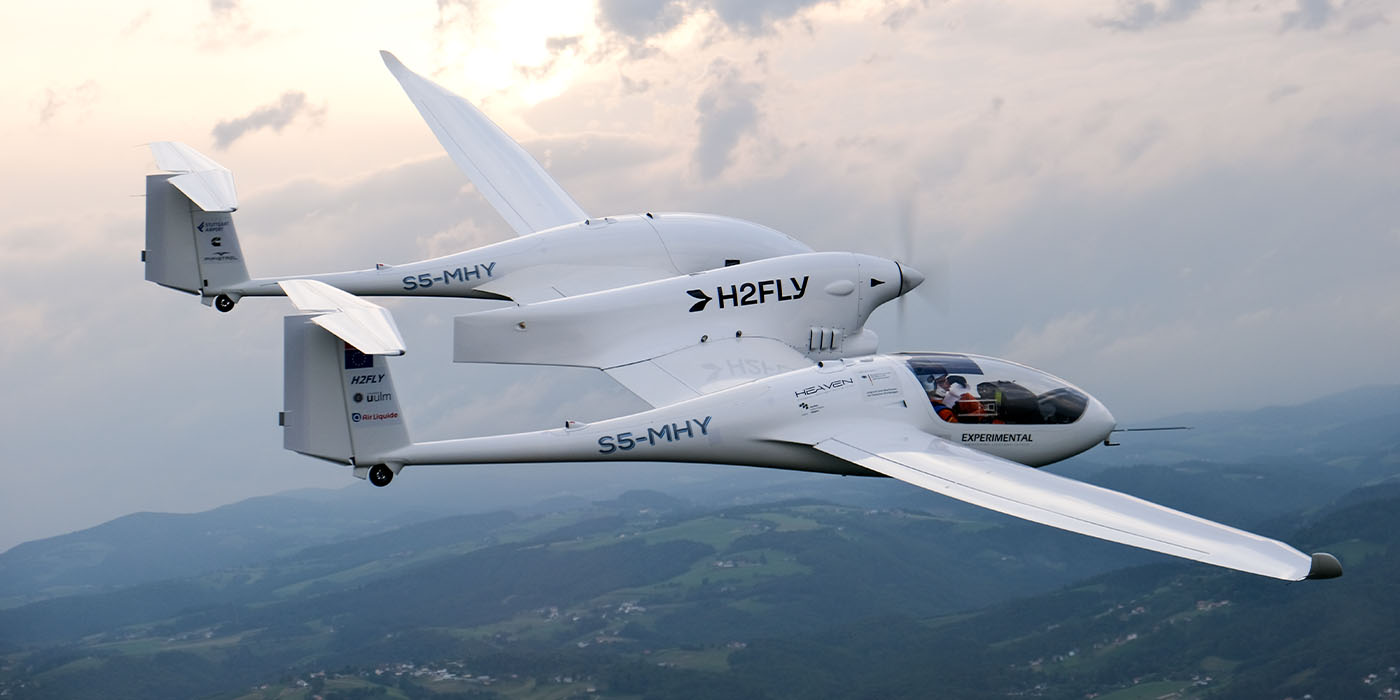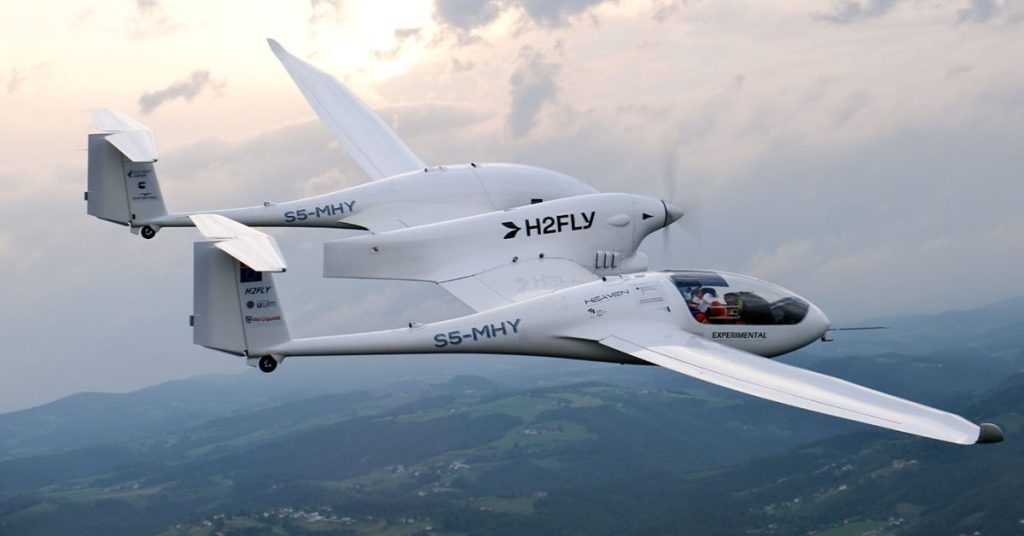
Zero emission aircraft powertrain developer H2FLY is celebrating a major milestone in what it is hailing as a world’s first. The company has successfully piloted a flight of an electric aircraft powered by liquid hydrogen rather than gas, opening a new door of opportunity for zero-emissions long distance flights.
H2FLY is a Stuttgart, Germany-based company that specializes in the development of hydrogen electric aviation technology – more specifically, liquid hydrogen – with hopes of becoming one of the first to deliver a qualified propulsion system to market. It has the support of Joby Aviation, an eVTOL developer we often cover than acquired H2FLY in 2021.
Today’s news may be a world’s first, but H2FLY has already delivered several firsts compared to other zero-emission aviation companies. For instance, its HY4 hydrogen electric aircraft completed its maiden flight all the way back in 2016 and broke a world record in 2022 when it soared above 7,000 feet in the sky during a 77-mile journey across Germany.
Thanks to nearly a decade of experience, H2FLY has garnered the financial support of multiple German ministries as well as Project HEAVEN – a consortium of aviation specialists including the German Aerospace Center supported by the EU government to demonstrate the feasibility of liquid, cryogenic hydrogen use in aircraft.
Following its most recent voyage with a pilot, H2FLY has offered a potentially groundbreaking demonstration that enables longer range and higher payloads.

H2FLY demonstrates viability of hydrogen electric aircraft
The hydrogen powertrain developer shared details of its latest aerial voyage test campaign which included four separate flights in the HY4 demonstrator electric aircraft, which was piloted by a human inside for the first time ever.
Rather than use pressurized gaseous hydrogen storage (GH2) like the past, the HY4 electric aicraft was powered by cryogenically stored liquid hydrogen (LH2), enabling significantly lighter tank weight and volume. H2FLY shared that as a result, its hydrogen-electric fuel cell propulsion system will be able to double the maximum range of the HY4 aircraft for instance, from 750 km (466 miles) to 1,500 km (932 miles). H2FLY cofounder Professor Josef Kallo spoke to the breakthrough:
This achievement marks a watershed moment in the use of hydrogen to power aircraft. Together with our partners, we have demonstrated the viability of liquid hydrogen to support medium and long-range emissions-free flight. We are now looking ahead to scaling up our technology for regional aircraft and other applications, beginning the critical mission of decarbonizing commercial aviation.
Looking ahead, H2FLY will continue its progress toward commercialization alongside the development of its new H2F-175 fuel cell systems which are expected to propel aircraft to full power range at altitudes up to 27,000 feet. The company’s future work will emerge from its new Hydrogen Aviation Center at Stuttgart Airport, set to open next year.
Here is some raw footage of the HY4 hydrogen electric aircraft being piloted in Slovenia.
FTC: We use income earning auto affiliate links. More.

